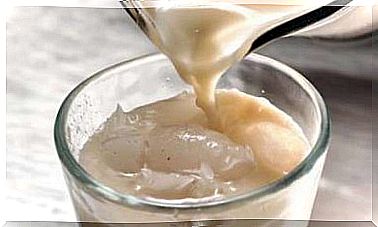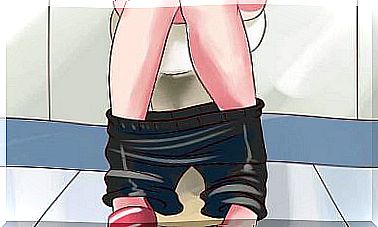Hiccups: Types, Causes And Mechanism
Usually, hiccups stop on their own after a few minutes. Find out more in this article.

Surely you’ve had the hiccups in a sticky situation and cursed those uncontrollable noises coming out of your mouth. In this case, it is very common for the people around you to advise you in this or that way to avoid or stop it. But what is hiccup really?
The term hiccup comes from ‘ hippos ‘ which in Greek means horse. In reality, it is a spasmodic and involuntary contraction of the diaphragm.
In addition, the diaphragm is the muscle that separates our abdomen from the chest. It plays a fundamental role in breathing because it allows the rib cage to fully expand and then contract to circulate air through the lungs.
Although most of the time, hiccups are reversible and momentary, sometimes they will persist. In this article, we’ll tell you more.
What are hiccups?
As we mentioned before, hiccups are a series of involuntary contractions of our diaphragm. When it does occur, the vocal cords suddenly close, causing that “hip” sound we associate with this phenomenon.
The diaphragm, like any other muscle, works by responding to stimuli sent to it by the nerves. In this case, the nerve responsible for stimulating the movement of the diaphragm is the phrenic nerve. What happens in hiccups is that the nerve sends abnormal impulses that cause it to contract without it being necessary.
Hiccups are classified according to their duration. It can be acute, persistent or overwhelming. Acute hiccups are the most common, it can last 48 hours. Usually, it is self-limited and normally goes away within a few minutes.
On the other hand, persistent hiccups can last anywhere from 48 hours to a month. While the insurmountable hiccups can last for more than two months. The latter affects only one in 100,000 people and is usually associated with serious illnesses, such as cancer.

What are the causes of acute hiccups?
The most common hiccups occur in simple situations such as overeating or eating very quickly. It can also be due to certain carbonated or alcoholic drinks.
Likewise, it is common to swallow air while chewing gum or candy. These situations also promote this reaction of the body. Oddly enough, acute hiccups can appear in stressful or anxious situations, although this is less common.
What are the causes of persistent hiccups?
When the hiccups last longer than 48 hours, it could be a sign that something is wrong with our body. First of all, you should know that this can happen due to damage to the phrenic nerves. As we have explained, these are the nerves responsible for sending impulses to the diaphragm.
These nerves travel from our brain to the diaphragm. During their journey, they can be injured for different reasons: a tumor, a cyst, an enlarged thyroid, or even an infection that inflames the throat or larynx.

In addition, any damage to the central nervous system can also cause loss of control of these impulses, even if the nerve is healthy. For example, a brain tumor, stroke, or infection of the meninges.
In addition, persistent hiccups can occur as a side effect of certain medications or anesthetics. It can also be a symptom of pathologies such as diabetes or kidney failure.
Conclusion
Finally, it is important to stress that it is the acute hiccups that are the most common and that resolve on their own within a few minutes. However, if it lasts beyond 48 hours, it is best to see a doctor.
In this case, the main thing is to treat the cause. If it still exists, studies confirm the possibility of using certain drugs to control it. This is the case with baclofen or chlorpromazine.









